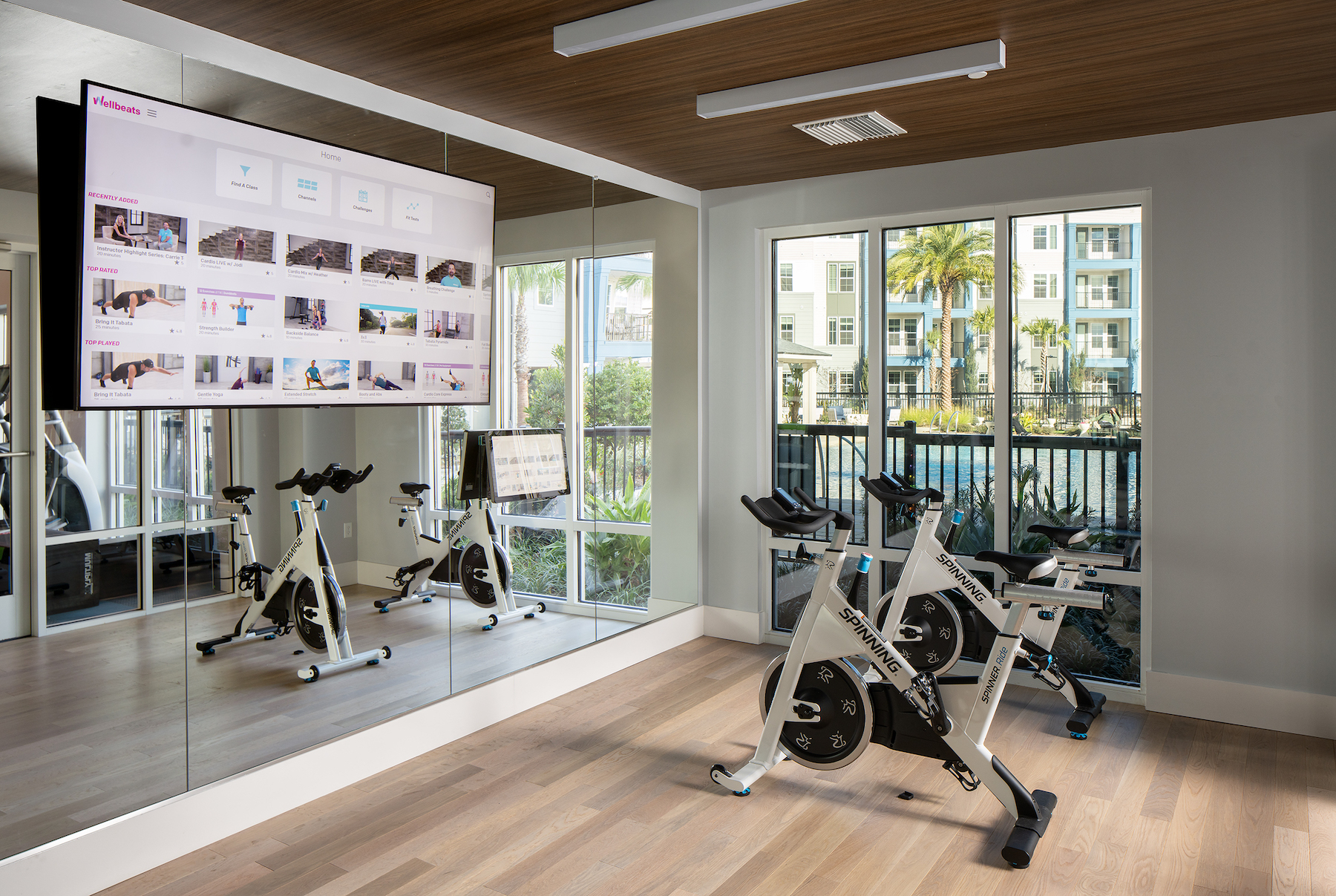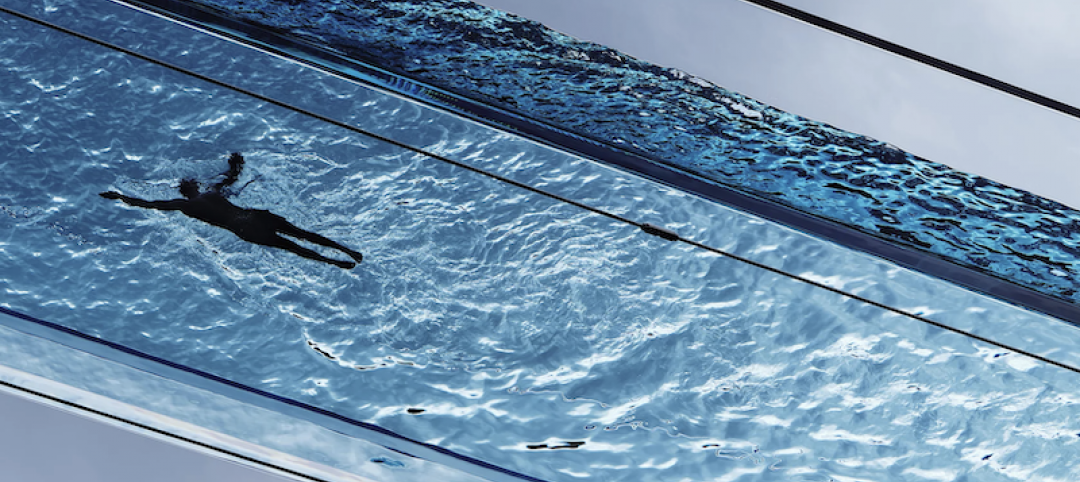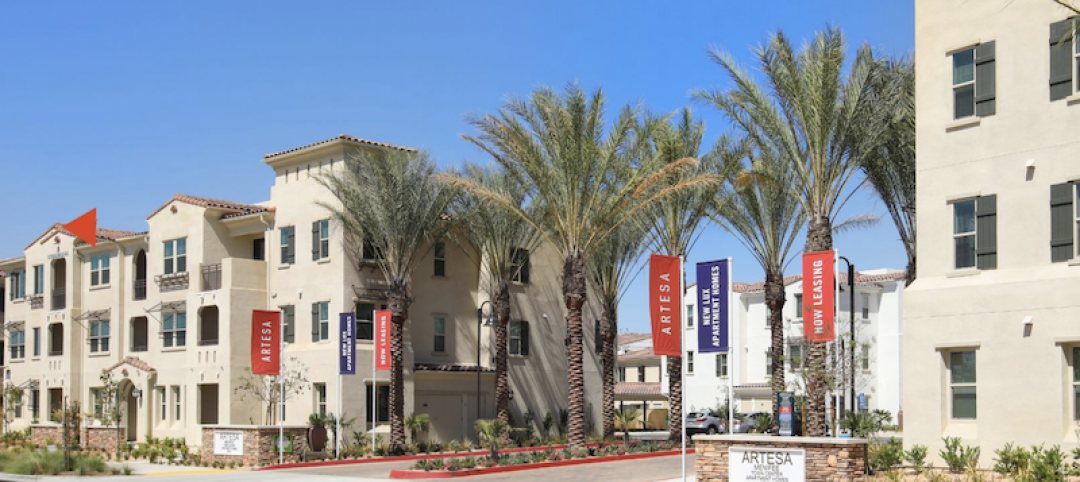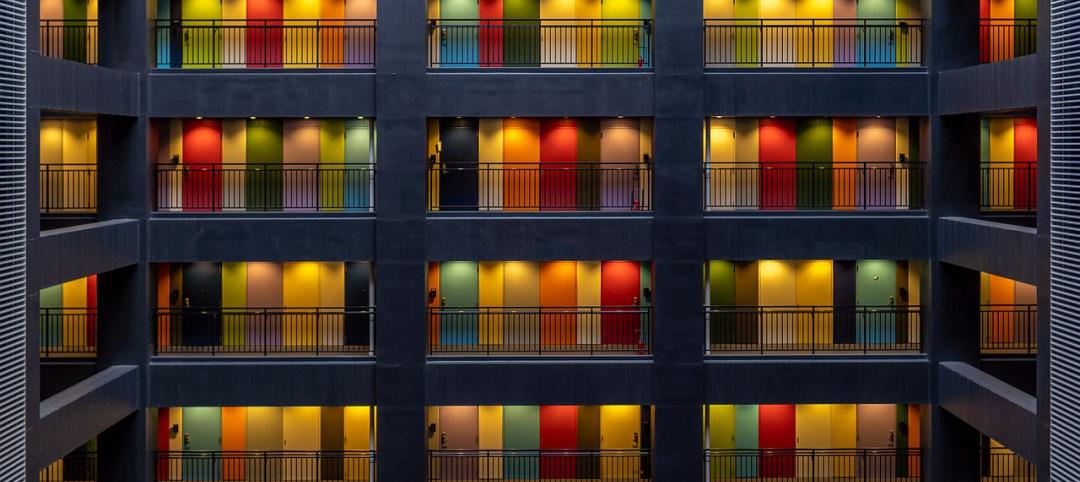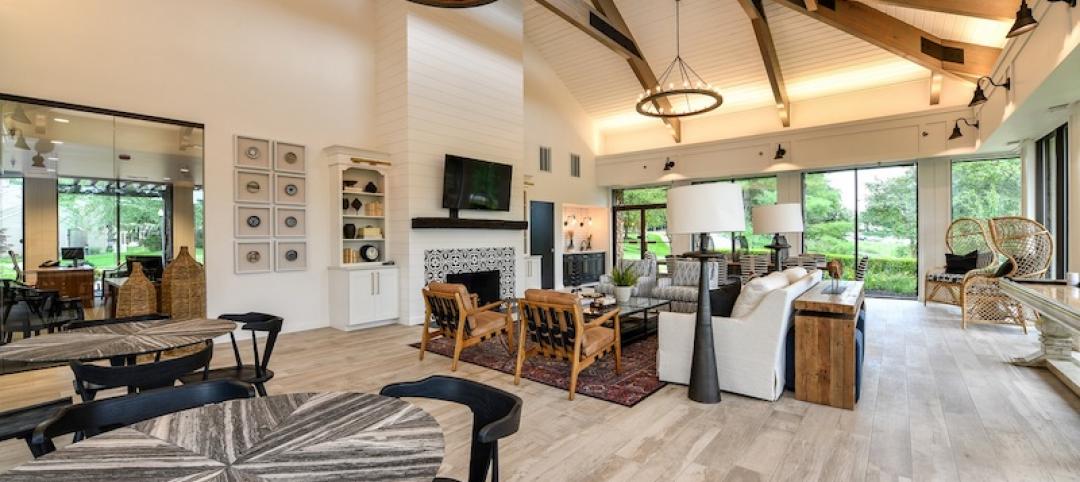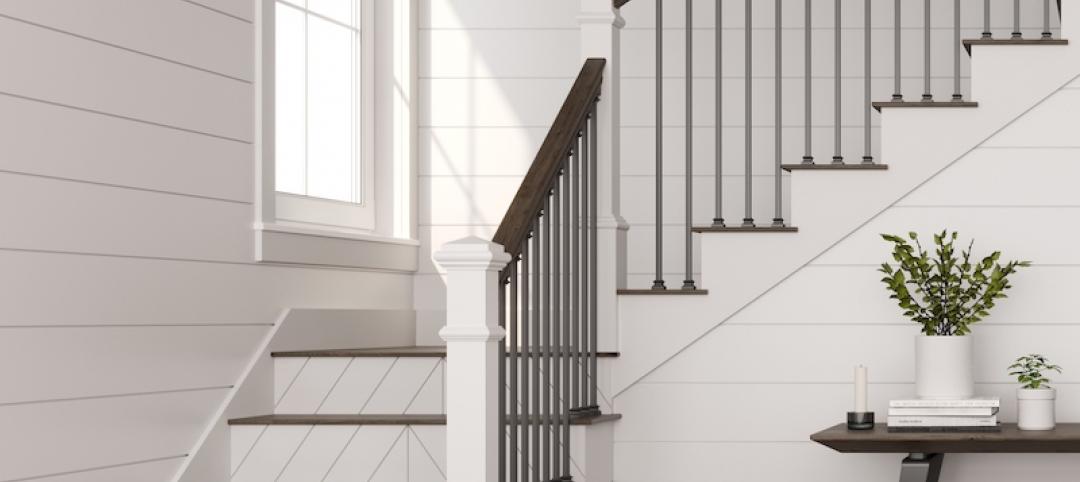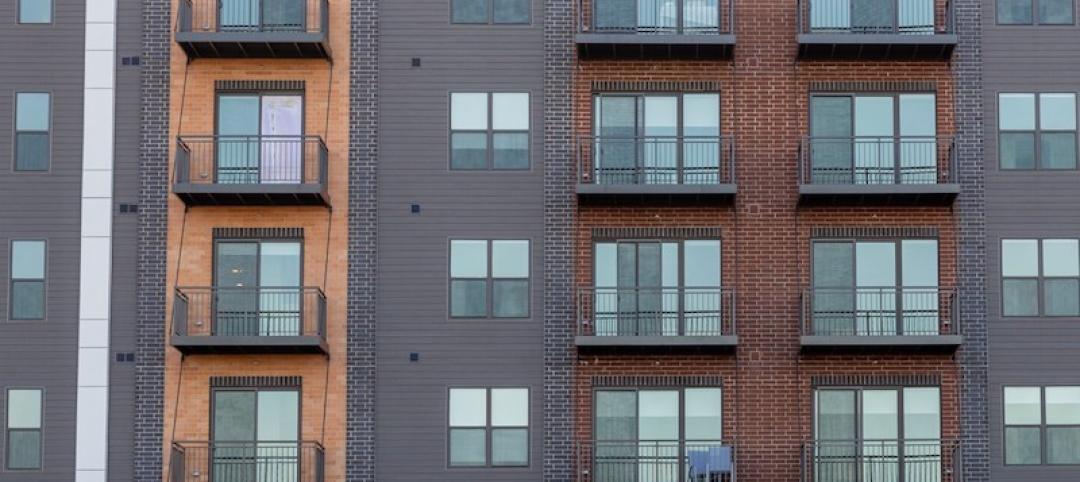When the Covid pandemic hit, in 2020, rental and condo communities across the country had to slam the doors on their fitness centers. Now that things are opening up, we wanted to see what’s new in fitness centers since we last visited this topic (Fitness Centers Go for Wellness, Fall 2018).
Who better to bring us up to date than Karl Smith, DHEd, EIM, Fitwel Ambassador, Director of Resident Experience at multifamily developer/owner Cortland? Following are valuable tips from “Dr. Fitness,” as he is called.
1. The big buzz in fitness: “gamification.” Smith said Peloton, the home exercise equipment manufacturer, turned fitness into a game, especially for Gen Z and Millennial residents. “They’re into the gamification of fitness,” he said. “They want to have fun when they’re working out, and they want to talk to their friends about it.”
Just before the company went public, in September 2019, Peloton stopped supplying multifamily properties with new equipment. Its acquisition of Precor in April 2021 created a new division that supplies rental and condo communities with a commercial version of Peloton equipment. Competitors include Echelon (exercise bicycles) and Aviron (rowing machines), said Smith.
Cortland is also installing “mirror” equipment in its gyms. “There’s a screen where you see yourself working out,” said Smith. Popular brands: Mirror, Tempo Studio, and Tonal.
2. The best spot for your fitness center. “The number one best place is to be as close to the leasing office as possible,” said Smith. “The fitness center is a marketing tool. When you take prospects on a tour, you want all your high-end amenities—the gym, the fire pit, the pool—as close to the leasing office as possible so they can see everything in a short period of time and make that commitment to sign the lease.”
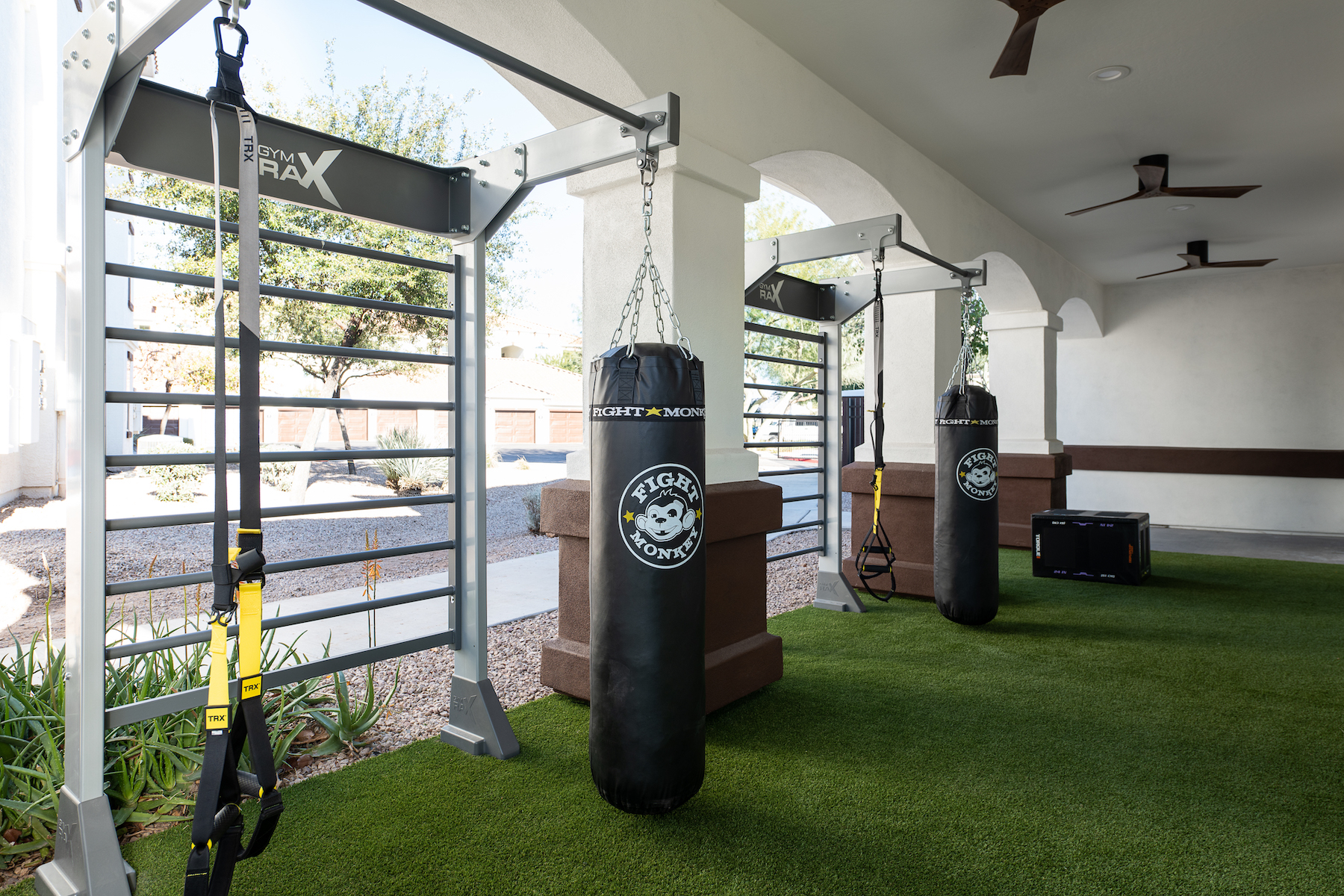
3. Safety first on equipment. Cortland uses “selectorized” fitness rigs—resistance machines that have limits on the amount of weight and range of motion the user can employ, so no spotter is needed. “That greatly reduces the odds of a resident getting injured from using our equipment,” said Smith. “Safety is built into everything we do in the gym.”
4. Dump the group classroom. “Chances are you’re going to have one class a day, so that’s 23 hours where it’s not occupied,” said Smith. “When we’re renovating a gym, the first thing we do is take that wall down and turf the floor.” That creates a more inviting space where tenants can work out on their own using accessories like medicine balls and dumbbells and fitness-on-demand programs like Wexer and Wellbeats.
5. Don’t try to meet everyone’s fitness needs. “We cater to a small percentage of our residents,” said Smith. “Seventy-five percent of our tenants say they want a fitness center, but only 10-25% will actually use it.” His research shows that one-fourth of Cortland tenants have a private gym membership; another quarter have no interest in fitness. “We market the service, but we do not expect everyone to use it,” said Smith.
6. Know your fitness target. “You have to identify who you’re building this fitness center for, and you have to have that person in mind every time you build one,” said Smith.
7. The sweet spot: novice exercisers. “They’re active, but they’re not going to be heavy lifters,” said Smith. “They’re going to ask questions about how to work out, which gives us an opportunity to teach about how to use the equipment properly.”
Smith said Cortland has at least one trained “wellness champion” staff member on site, as well as instructional signage showing how to use the equipment. Through a partnership with Valet Living, Cortland brings a trainer to the site two or three times a week for a couple of hours.
Dr. Fitness’s Magical Fitness Facility Space Allocation Formula
How big should your fitness center be? Smith has developed a reliable formula for determining minimum square footage for a typical Cortland rental project, based on the number of rental units:
Minimum square footage = # of units x 1.45 x 0.35 x 0.60 ÷ 5 x 50
For a 300-unit complex, that would be: 300 x 1.45 = 435 x 0.35 = 152.25 x 0.60 = 91.35 ÷ 5 = 18.27 x 50 = 913.5 s.f.
Try it against your own estimate or rule of thumb.
Related Stories
Multifamily Housing | Jul 19, 2021
HAL Architects designs 'swimmable bridge' that connects two residential buildings
The project has been dubbed Sky Pool.
Multifamily Housing | Jul 19, 2021
Artesa at Menifee Town Center provides urban-style living in a small-town setting
MBK Rental Living is the project’s developer.
Multifamily Housing | Jul 15, 2021
Greystar’s The Pullman is a new mixed-use apartment community in Denver
The Mulhern Group designed the project.
Multifamily Housing | Jul 15, 2021
Economic rebound leads to record increase in multifamily asking rents
Across the country, multifamily rents have skyrocketed. Year-over-year rents are up by double digits in nine of the top 30 markets, while national YoY rent growth is up 6.3%. Emerging from the pandemic, a perfect storm of migration, enhanced government stimulus and a hot housing market, among other factors, has enabled this extremely strong growth.
Multifamily Housing | Jul 13, 2021
489-unit multifamily community completes redevelopment in Missouri
The community is located in Chesterfield, Mo.
Multifamily Housing | Jul 11, 2021
New fixed-wood closet system for multifamily developments introduced
VUE is a new high-quality, economical fixed-wood shelving system from Organized Living.
Multifamily Housing | Jul 11, 2021
Aluminum railing systems offer ‘versatile styling, easy installation’
Trex Aluminum railing systems offer ‘versatile styling, easy installation,' says the manufacturer.
Daylighting Designs | Jul 9, 2021
New daylighting diffusers come in three shape options
Solatube introduces its newest technology innovation to its commercial product line, the OptiView Shaping Diffusers.


